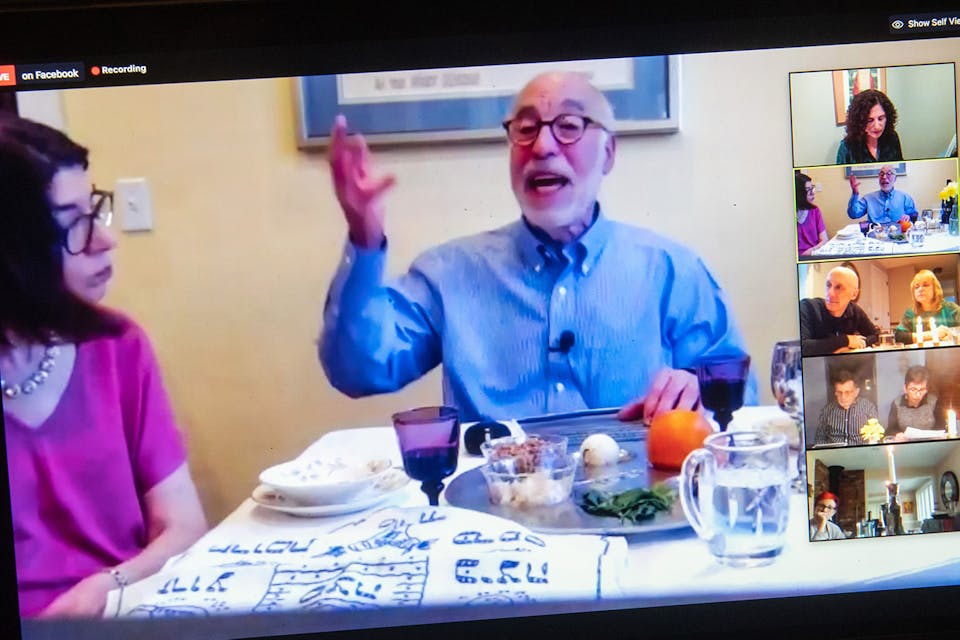
December 28, 2020
Mosaic’s Year in Review: The Coronavirus
As 2020 comes to a close, we're looking back at the work we published this year. Today, we focus on the coronavirus, and its effects on Jewish life.
As 2020 comes to a close, Mosaic is looking back at the work we published this year. Today, we focus on the coronavirus, and its effects on Jewish life. Tomorrow, we’ll look at the seminal writing Mosaic produced this year on Israel and the Middle East.
Zoom Seder
The pandemic spread in the early months of 2020, and religious institutions quickly suspended attendance at daily and weekly prayer services. But it was not until the springtime holiday of Passover that Jewish communities at large were forced to confront the most fundamental disruptions to religious observance. The Passover seder is orchestrated to bring the generations together; the coronavirus poses special risks for the elderly. Non-Orthodox celebrants swiftly decided to utilize videoconference technology so that the whole family could observe together safely. But because the holiday poses restrictions on the use of electricity similar to those observed on Shabbat, many Orthodox Jews rejected the so-called Zoom seder. Yet in so doing, they affirmed something else. That something is the subject of the Villanova University law professor Chaim Saiman’s April essay—the most-read work in Mosaic this year.